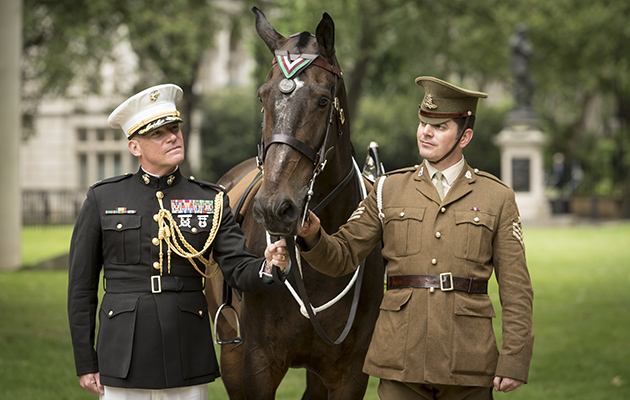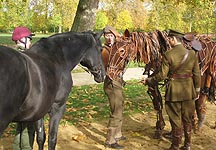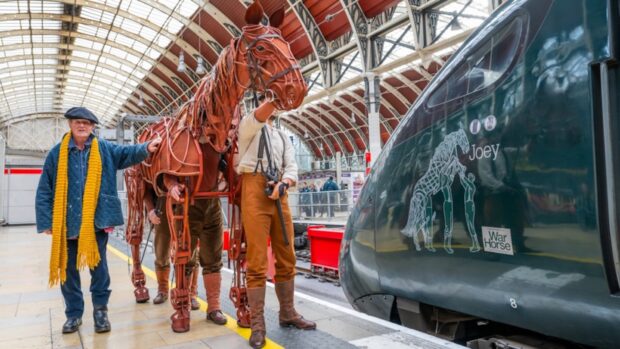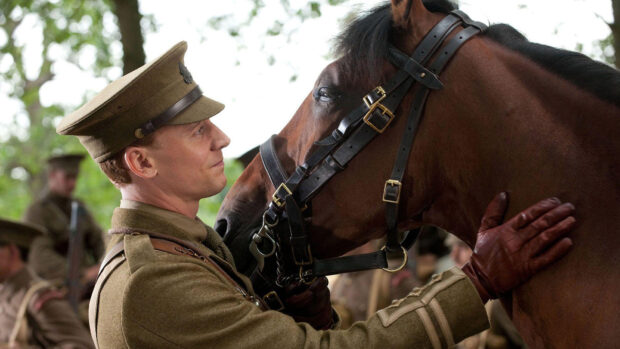A campaign to remember the many millions of animals killed in conflicts has been launched to mark 100 years since the end of the World War I.
Former MP Ann Widdecombe today (8 November) launched charity SPANA’s campaign to remember the “forgotten victims” of today’s war zones.
“On this significant anniversary of the First World War, it’s so important that we first and foremost remember the people who lost their lives during this terrible conflict and then consider also those who returned disabled and disfigured and the civilians who died,” she said.
“They faced unimaginable horrors. Then, as we stop to remember all those who suffered and died a century ago, we must also not forget that animals continue to be innocent victims in brutal conflicts across the world today.”

Around 16 million animals were put into service during the war, including more than a million horses and mules used by Britain.
They faced terrible conditions while transporting ammunition, ambulances, messages, food rations and supplies.
Nine million horses, donkeys and other animals were killed.
Animals were also used in the World War II by forces on both sides. Britain had around 200,000 animals in service, the US military had 14,000 mules in Italy alone, while Germany lost more than 179,000 horses in two months on the Eastern Front.
SPANA continues to work in conflict areas to help animals in need, whether they are used in war or are injured as a result of fighting.
It provides free veterinary treatment to working animals in developing countries, including in conflict zones.
The charity set up a mobile veterinary clinic in Iraq in 2003 following a request for urgent help for equines and farm animals, providing care and 30 tonnes of feed.
SPANA also worked in Helmand province, Afghanistan, where local people are heavily reliant on working animals. In 2010, SPANA worked to rebuild shattered infrastructure, training animal health workers and equipping them with worming and vaccination kits.
“In recent years, SPANA has worked in war zones – from Kosovo and Iraq to Afghanistan – to provide urgent veterinary treatment to animals in severe distress,” said charity chief executive Geoffrey Dennis.
Article continues below…
You might also be interested in:

Subscribe to Horse & Hound magazine today – and enjoy unlimited website access all year round

Brave war horse honoured with animal ‘Victoria Cross’
Sergeant Reckless is the 68th animal to receive the award, which is given to those who display outstanding acts of

War Horse puppet Joey meets the Household Cavalry
The life-sized equine puppet star of the hit West End stage show War Horse came face-to-face with real life Household
“Our work eases suffering and also helps build the peace among communities who continue to rely on animals.
“As we commemorate Armistice Day, it is a sad reality that the appalling suffering of animals in conflict zones is not a distant memory, consigned to history.
“But while there are animals in desperate need, during times of war and peace, it is vital that help is on hand for them.”
For all the latest news analysis, competition reports, interviews, features and much more, don’t miss Horse & Hound magazine, on sale every Thursday
This week’s issue — out today (Thursday, 8 November) — is a World War I, featuring including horse hero Warrior, plus one diary reveals equine life during battle and more.



